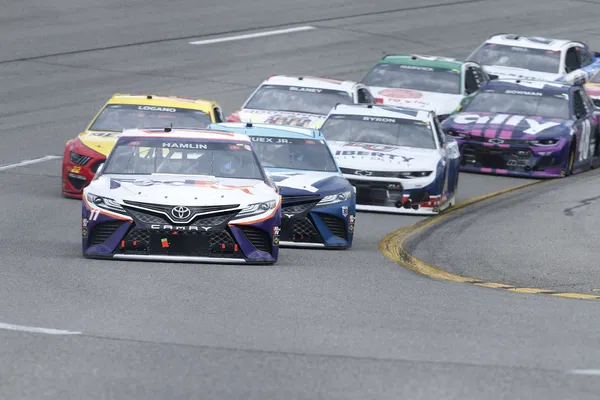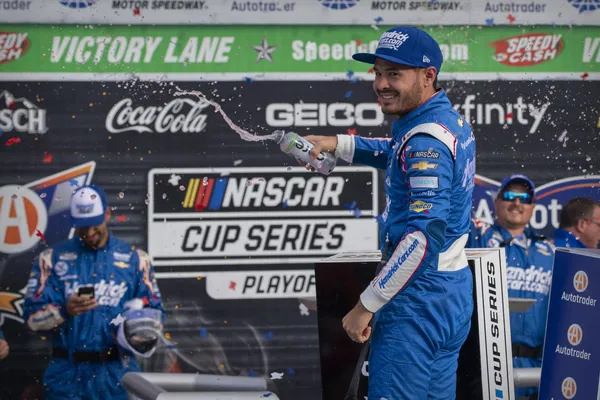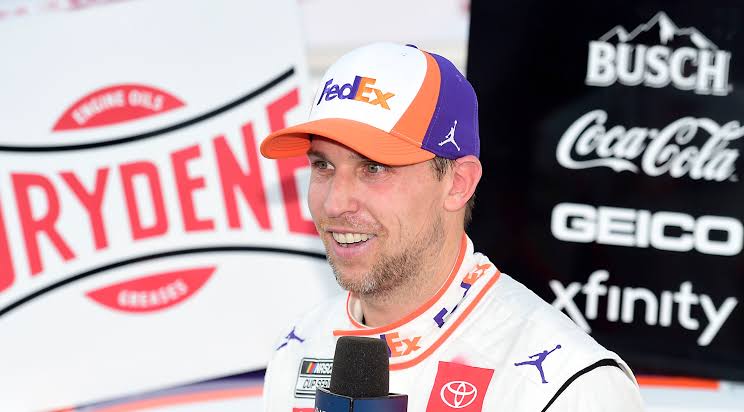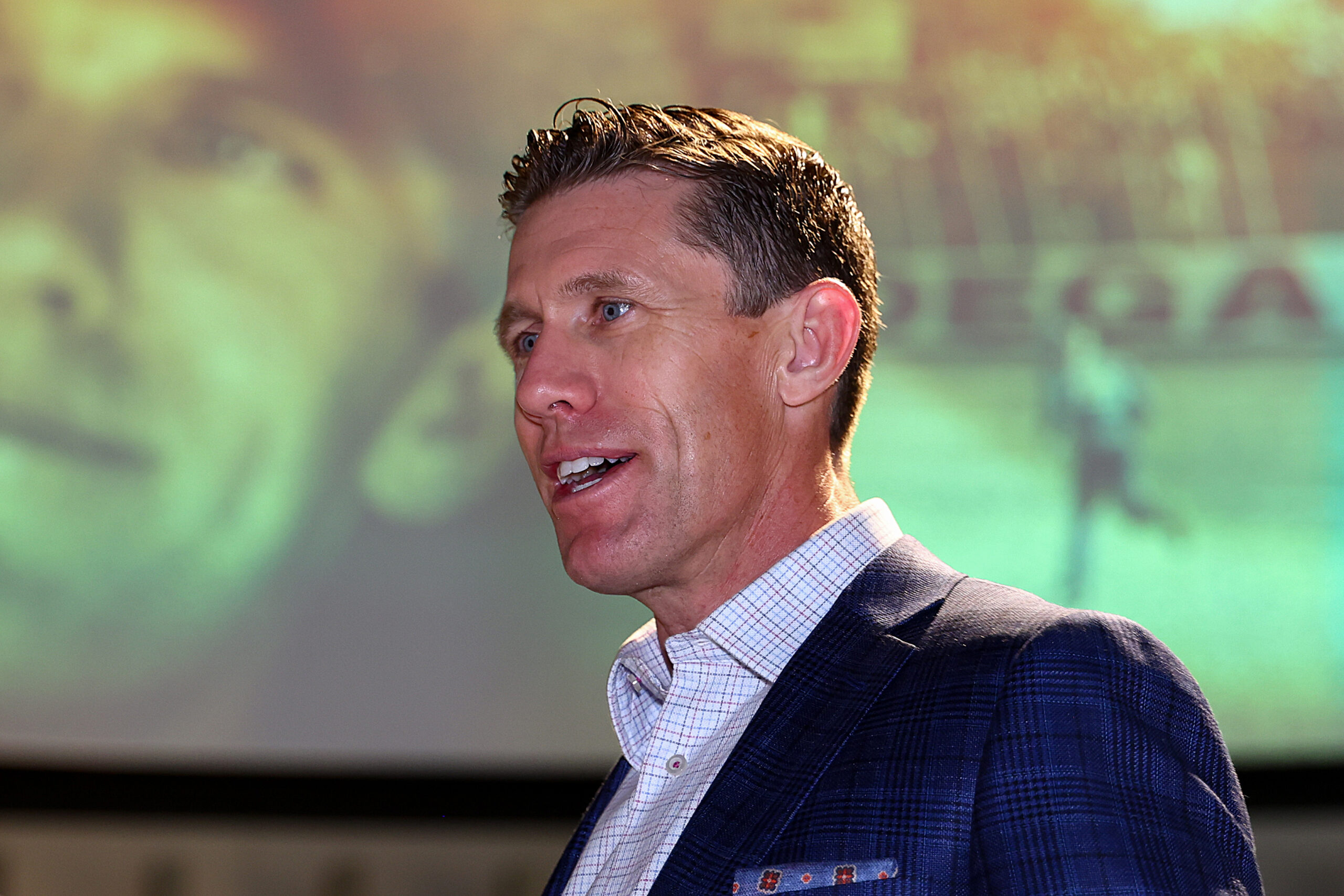In a surprising twist, NASCAR’s international original equipment manufacturer (OEM) is experiencing a backlash that might impact its standing in the eyes of fans and employees alike. Toyota, which boasts a lineup of formidable Cup Series drivers like Denny Hamlin and Tyler Reddick—both vying intensely for the Cup Series championship amid stiff competition—finds itself navigating treacherous waters in public opinion. The company’s recent decision to pivot away from its diversity and equality initiatives has raised eyebrows and triggered a wave of mixed reactions within the NASCAR community.
With a workforce of approximately 50,000 American employees and a network of 1,500 dealers, Toyota may have alienated a significant portion of its employees by stepping back on its commitment to diversity and inclusion. This decision comes in the wake of an activist campaign that has made headlines for targeting major corporations involved with LGBTQ+ advocacy. Robby Starbuck, a conservative activist, has publicly criticized Toyota for its association with the Human Rights Campaign (HRC), an organization dedicated to promoting equal rights for LGBTQ+ individuals. Starbuck’s focus on Toyota marks a continuation of his campaign against companies he deems “too woke,” having previously targeted Ford Motor Co. and others like Harley-Davidson and Lowe’s. Now, Toyota has joined this contentious list, responding to Starbuck’s demands by re-evaluating its corporate policies.
According to a recent report from Bloomberg, Toyota has decided to “refocus” its diversity, equity, and inclusion (DEI) programs while suspending its sponsorship of LGBTQ+ events. The company cited a “highly politicized discussion” surrounding corporate commitments to diversity as a key reason for this shift. Notably, Toyota will also cease its participation in HRC rankings and various corporate culture surveys. In a memo sent to its workforce, the automaker indicated a plan to “narrow our community activities to align with STEM education and workforce readiness,” distancing itself from its previous commitment to broader inclusivity initiatives.
Initially, after facing backlash from Starbuck’s campaign, Toyota claimed that its employee groups led these diversity initiatives, distancing itself from direct involvement. However, it soon became clear that the company chose to capitulate to the activist’s agenda. Eric Bloem, a vice president at HRC, warned Toyota of the potential repercussions of its decision, stating that abandoning DEI initiatives could lead to lasting negative impacts on its business. In an era where more individuals openly identify as LGBTQ+, Bloem cautioned that short-sighted decisions could alienate customers and undermine Toyota’s future success.
As the news of Toyota’s decision spread, the NASCAR community responded with a range of emotions, showcasing the sport’s diverse audience. While NASCAR has a rich history spanning 76 years, its fan base is not monolithic; it encompasses a variety of perspectives and beliefs. Many racing fans, particularly those aligned with more traditional viewpoints, expressed outrage at Toyota’s rollback on diversity policies. One fan announced a change in loyalty, stating, “Well, I was looking at a @ToyotaMotorCorp but I’ll be sticking with Volkswagen for my next car now.” Another commented on the situation, calling Toyota’s decision “spineless” and suggesting that the company was caving to the demands of a narrow faction. One fan even went so far as to label Toyota “cowards” for not standing firm against Starbuck’s pressure and hinted at potential sales declines, quipping, “f-ck that sequoia I was eyeing then.”
Conversely, another segment of the NASCAR audience welcomed Toyota’s decision, reflecting nostalgia for the days when diversity initiatives were less prevalent in the sport. Some fans expressed satisfaction, with one fan gleefully stating, “Thank goodness I need a new 4-Runner,” while another boasted about proudly driving their Toyota to the upcoming Talladega Superspeedway race, declaring, “Driving this baby up to Dega tomorrow with 250k miles. Toyota is the GOAT BABY.”
Clearly, Toyota’s shift in policy has evoked a spectrum of reactions within the NASCAR community, highlighting the complexities of the sport’s fan base and the broader societal conversations surrounding diversity and inclusion. As the lines are drawn and opinions solidify, one can only hope that this decision does not lead to adverse consequences for Toyota’s workforce or the integrity of NASCAR racing as a whole. The outcome of this situation could shape not only Toyota’s reputation in the automotive industry but also influence how other OEMs navigate similar challenges in the future.
Breaking: Toyota’s Bold DEI Move Sparks Outrage Among NASCAR Fans Amid Activist Pressure




